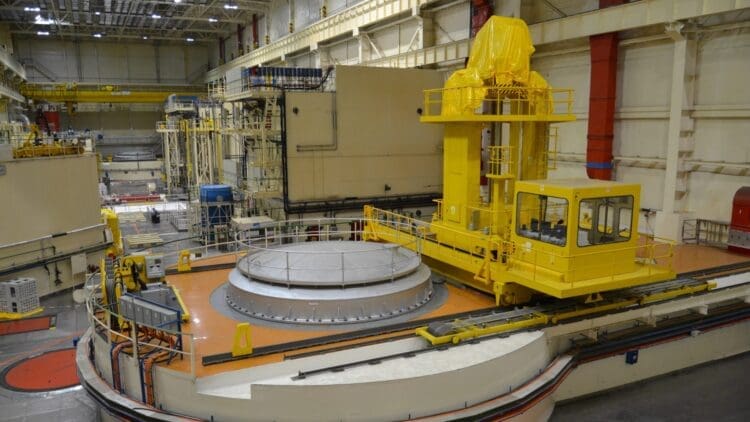The European nation of Belgium has begun construction of a large waste disposal site at the Dessel facility that will enable it to dispose of radioactive waste produced by the vast number of projects that make use of the energy resource. Belgium is not the biggest country in the world and relies heavily on the nuclear energy sector to provide several industries with the power needed to operate efficiently. The event was graced by the Prime Minister of Belgium, along with several other high-ranking government officials.
Belgium has pioneered the building of the massive repository at the Dessel site
Belgium officials have received high praise from industry insiders who welcomed the planned construction of the site at the Dessel facility. The plan is for the Dessel site to have several bunkers that house concrete vaults in which short-lived low- and intermediate-level waste will have been encapsulated with mortar.
At the moment, 28,831 vaults are planned, which will be spread across two zones: 20 bunkers in the first and 14 in the second. The facility known as the Dessel site will house all of Belgium’s low- and intermediate-level, short-lived radioactive waste, which comes from several industries, including nuclear power plants, hospitals, research institutes, and the decommissioning of nuclear facilities.
At the moment, the national radioactive waste management agency, ONDRAF/NIRAS, is managing the radioactive waste produced by these sites at its industrial subsidiary Belgoprocess in several dedicated buildings on the Dessel site.
The Federal Agency for Nuclear Control (FANC) approved a surface facility that was supposed to deal with the waste
In 2006, Belgium’s federal government approved the development of a surface storage project in Dessel. However, the Federal Agency for Nuclear Control (FANC) rescinded that approval, stating that more work needed to be done to make the site safe for operations.
ONDRAF/NIRAS submitted a new version of the application to the government and was granted approval to construct and operate the facility in 2023. In June 2025, the NucleusSafe partnership – a joint venture of Belgian contractors Deckx, BESIX, Vanhout, and Stadsbader – was granted the rights to operate as the contractor for civil engineering works, with construction company Denys responsible for electromechanical aspects.
ONDRAF/NIRAS Director General Marc Demarche praised the move by the Belgian government in a statement released to the press.
“This is a unique moment for our country, one of which I am very proud. It took many years and a lot of effort on the part of our teams to meticulously prepare this disposal project. For example, the safety file is nearly 25,000 pages long, demonstrating in detail how we will guarantee safety for at least 300 years. Now it’s up to the contractors to start the work and up to us to monitor it.” – ONDRAF/NIRAS Director General Marc Demarche
Several other nations have approved massive nuclear projects that could transform their nations’ energy capacity. Belgium’s Prime Minister, who attended the laying of the first foundation stone at the site, stated his thoughts on the groundbreaking plans.
“Nuclear technology is one of the keys to a better future. That is why, after years of hesitation, this government has finally abandoned the nuclear phase-out. Reliable and affordable energy, medical advances, or industrial safety: for many important applications, nuclear technology is crucial. Our country enjoys a solid reputation in these areas. With this fantastic project, we are once again strengthening our pioneering role in the safe and collectively supported storage of nuclear waste.” – Belgian Prime Minister Bart De Wever
Belgium could become a global leader in the disposal of radioactive waste
Once the site begins operating at full capacity, Belgium will have the opportunity to become a global leader in the disposal of radioactive waste, which has plagued the nations of the world. Since the world began using nuclear power, the major hindrance has been what to do with the vast amount of waste that the sites produce. Thanks to the innovative projects from Belgium, those concerns have now been laid to rest. The nuclear sector will continue to grow over the next few years.





